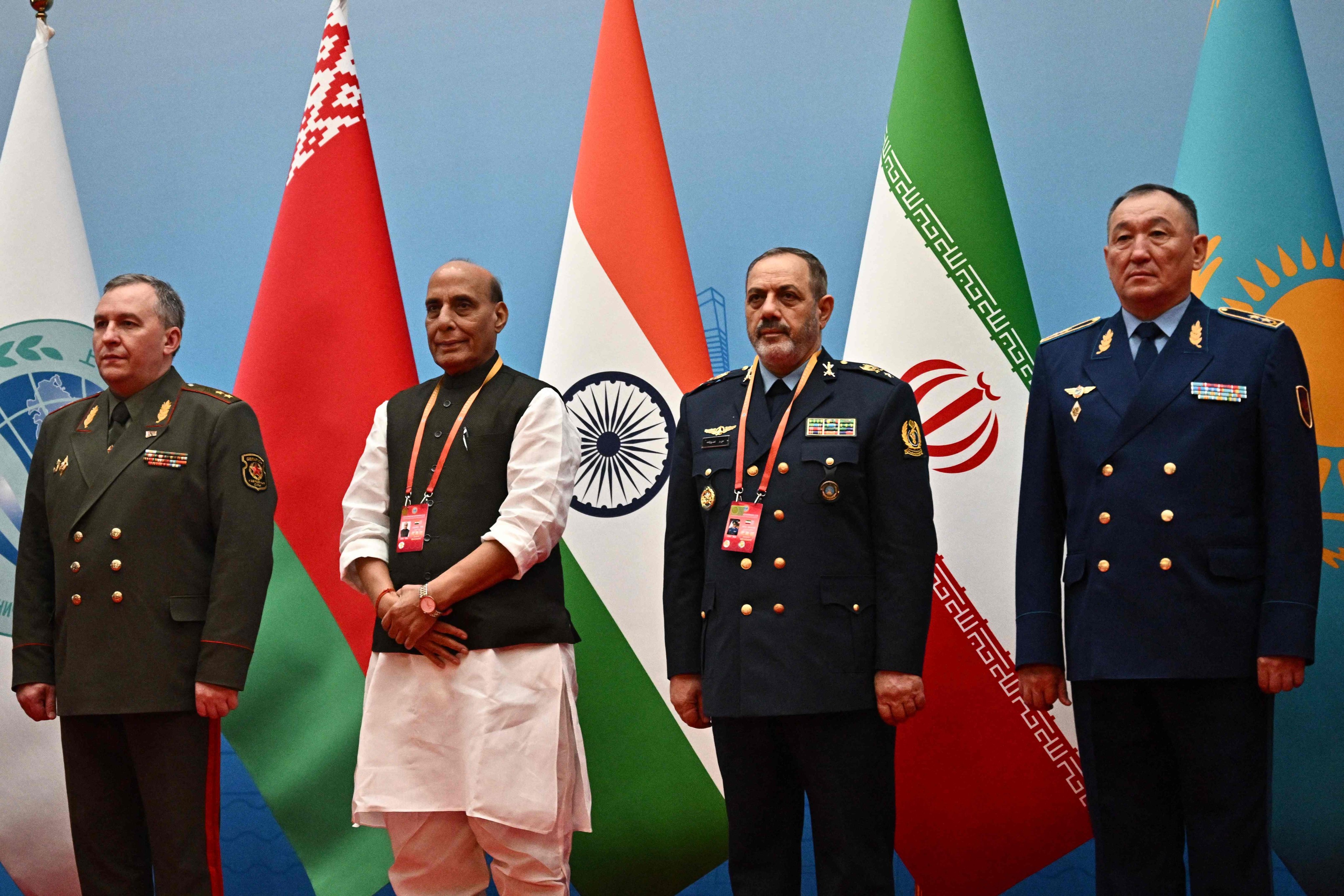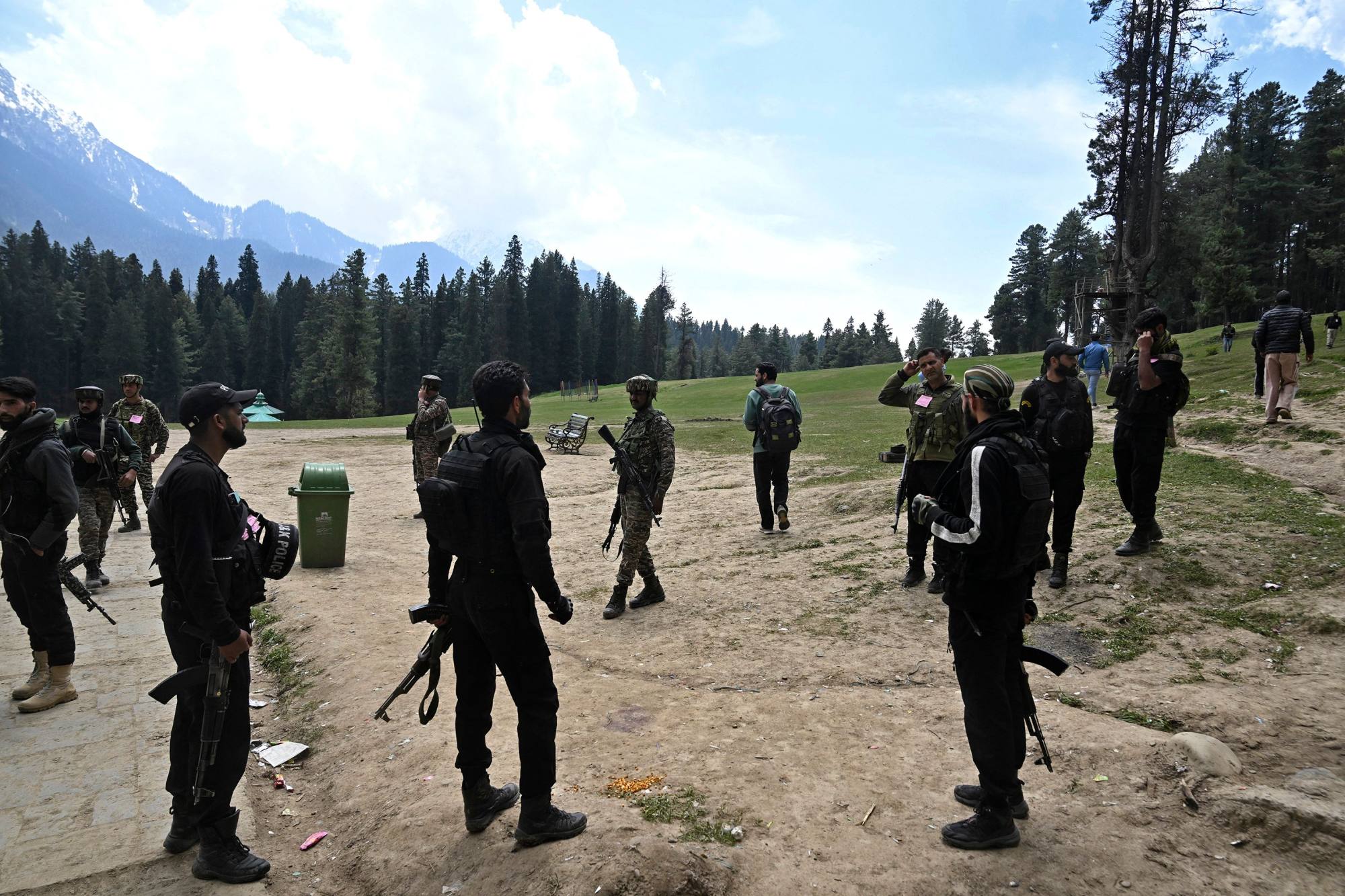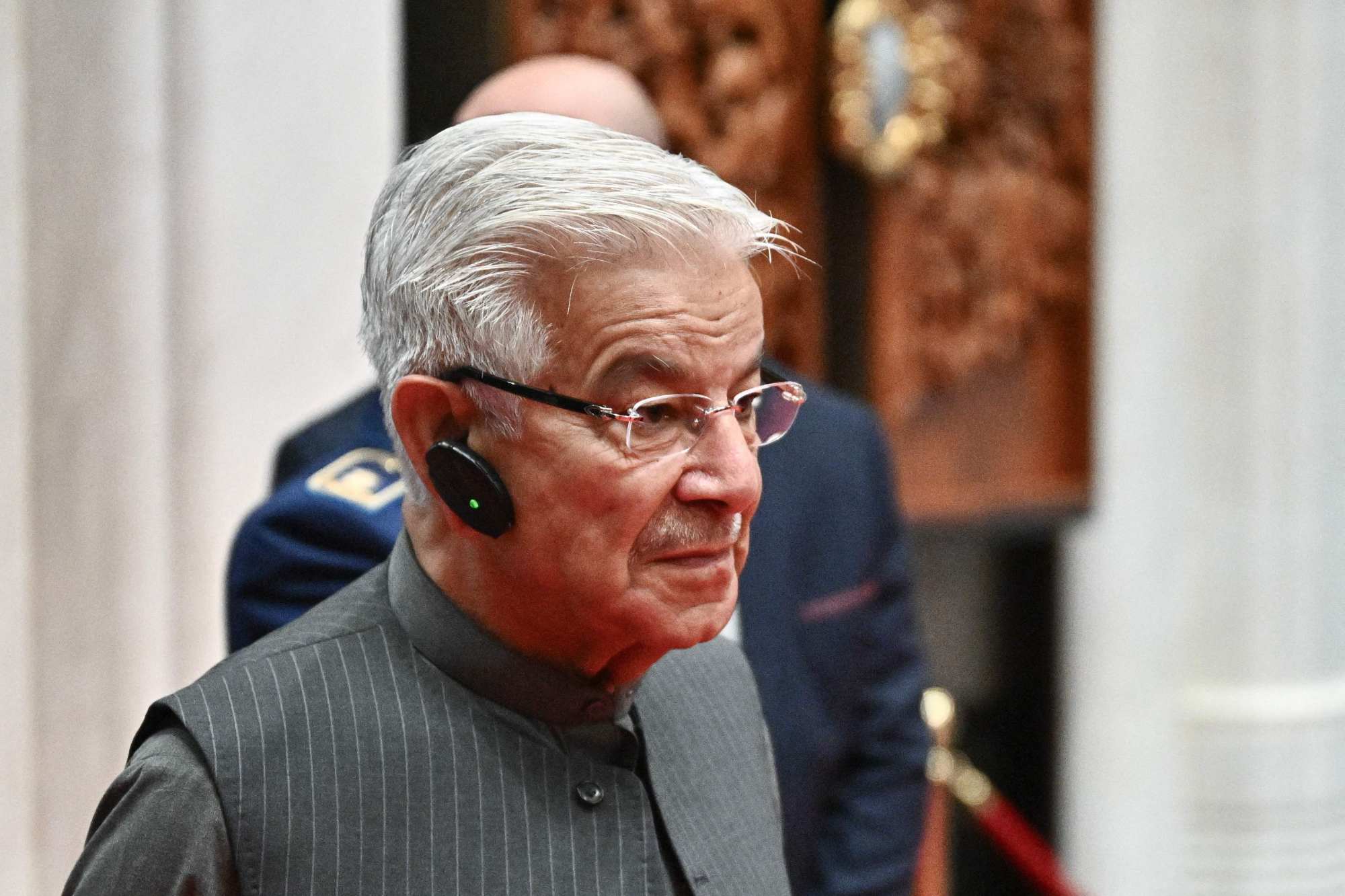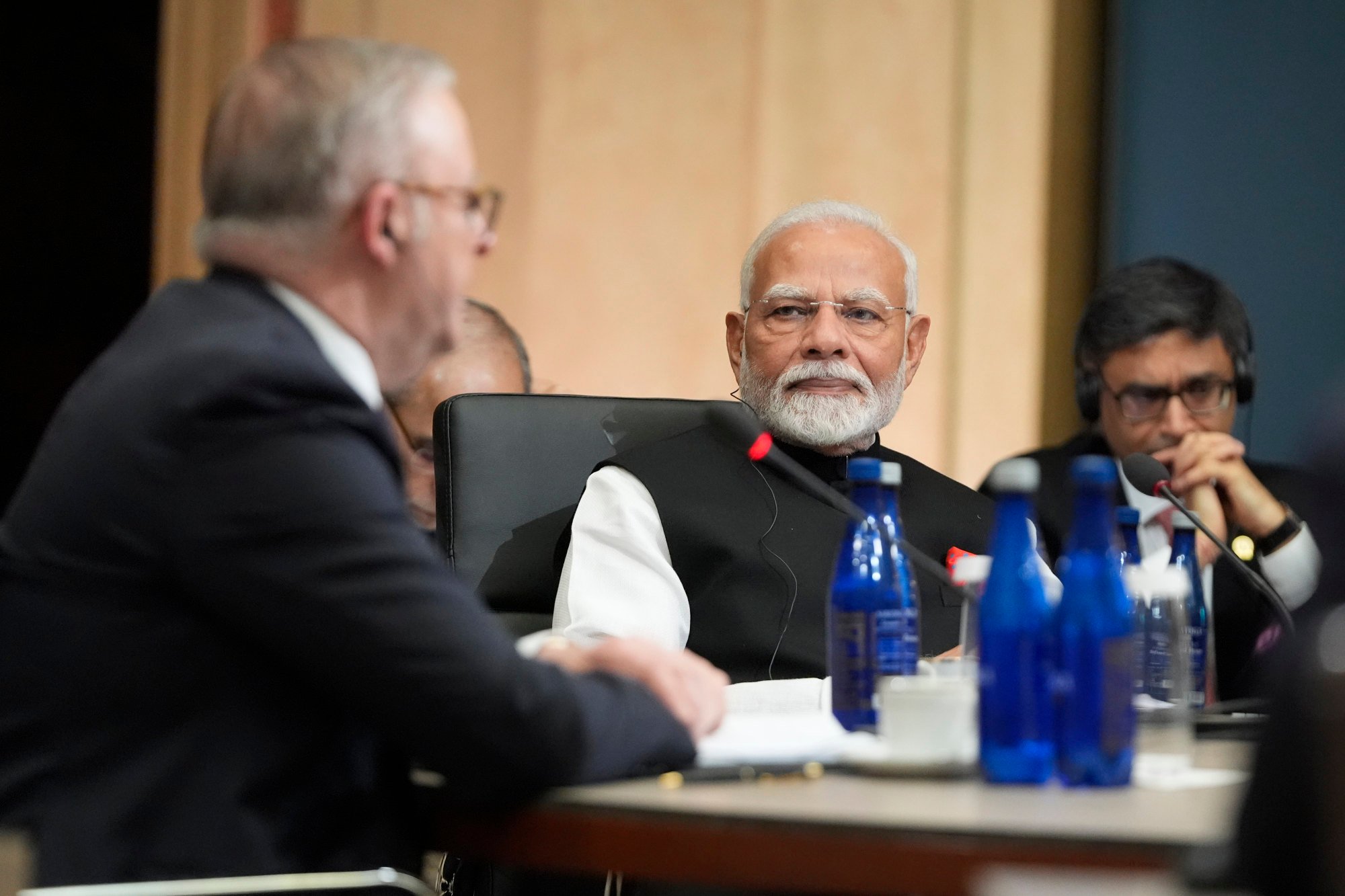India’s global clout in doubt after failing to sway SCO, Quad on Pakistan
SCO did not mention the militant attack in Pahalgam at its recent meeting, while the Quad’s statement on the incident excluded Pakistan

India’s failure to rally international backing for its claims that Pakistan was behind a recent deadly militant attack in Kashmir has exposed the limits of its diplomatic influence.
The setback has raised questions about India’s ability to mobilise multilateral platforms in its favour, despite being a prominent member of the China-led Shanghai Cooperation Organisation (SCO) and the US-backed Quadrilateral Security Dialogue (Quad), according to analysts.
At the SCO meeting in Qingdao on June 25, India refused to endorse a joint declaration that omitted any mention of the April 22 militant attack in Pahalgam, where gunmen killed 26 people – mostly tourists – in one of the deadliest assaults in Kashmir in recent years.
India has blamed Pakistan-based militants for the attack, which led to a brief conflict between the two South Asian neighbours before a US-brokered ceasefire took effect on May 10.
The final text of the SCO declaration did refer to militant violence in Pakistan’s Balochistan – another point of contention as Islamabad has long accused New Delhi of backing armed groups in the province.
India’s external affairs ministry said India refused to back the declaration because “one country objected” to Delhi’s request to include concerns about terrorism.
Anil Trigunayat, a former Indian diplomat, said the episode showed how the “Sino-Pakistan axis” had again influenced proceedings in a regional forum, leaving India with little choice but to withhold its support.

The SCO – a 10-member bloc focused on economic and security interests – is currently chaired by China and also comprises India, Belarus, Kazakhstan, Kyrgyzstan, Russia, Pakistan, Tajikistan, Uzbekistan and Iran.
“Terrorism is a global problem and has to be confronted through an honest global solidarity without any caveat or qualification,” Trigunayat said. “Pakistan is a rentier state with mercenaries ruling the roost through cross-border terrorism, especially against India.”
India’s global clout has come into further question after it failed to influence its fellow Quad members – the United States, Australia and Japan – to specifically name Pakistan in the bloc’s statement on July 2 condemning the Pahalgam attack.
External Affairs Minister S. Jaishankar attended the Washington meeting alongside US Secretary of State Marco Rubio, Australian Foreign Minister Penny Wong and Japanese Foreign Minister Takeshi Iwaya.
Trigunayat said double standards and hypocrisy by major countries had rendered the impression that Indian diplomacy was ineffective.
Unhandled type: inline-plus-widget {“type”:”inline-plus-widget”}
“The truth is India has called out the hypocrisy while undertaking the appropriate diplomatic and military solutions against the terror groups in Pakistan. Except for some Pakistani allies, the rest of the world condemned the terror attacks, while many supported India’s limited [military] response,” he said.

“Recent Quad, Russia and central Asian foreign ministers’ statements, let alone the West, clearly attest to the Indian heft.”
Other political pundits, however, have criticised Delhi over the lack of support for its stance at the SCO.
Former external affairs minister Yashwant Sinha has accused Prime Minister Narendra Modi of “isolating India on the global stage”.
Where is the evidence?
Abdul Basit, a senior associate fellow with the International Centre for Political Violence and Terrorism Research at Singapore’s S. Rajaratnam School of International Studies, said India’s “lack of evidence” on [Pakistan’s] cross-border links to the Pahalgam attack cost it support from organisations like Quad and SCO.
“India has not failed diplomatically, but foreign affairs don’t run on fiction or history. Quad and SCO have their credibility, and before supporting India on the cross-border links, New Delhi has to show the proof, like in the past,” Basit said.
He cited the 2001 attack on the Indian parliament and the 2008 Mumbai attack as examples how Delhi had won strong international support by providing evidence of the perpetrators’ Pakistani links.
“The international community has already condemned the Pahalgam terrorist attack, and rightly so. And if India shows the evidence of cross-border links in this incident, they will get the same support,” Basit said.
Analysts believe that India is walking on a tightrope, balancing between its national interests and obligations within the Quad and SCO amid growing global tensions and regional security challenges.

“India is in an unachievable position. On one hand, it’s part of the anti-China Quad, and on the other, it’s in the China-dominated SCO. It’s not able to balance these two extremes. And that is why it is not getting full support from either side,” Basit said.
Jon Danilowicz, a retired American diplomat, said that the most striking aspect of the recent India-Pakistan conflict had been the success of Pakistan’s diplomatic outreach.
“Pakistan has relied upon a trusted network of international partners that it has cultivated over recent years. It has also made significant headway in Washington,” Danilowicz said.
India’s efforts to line up international support had been disappointing, with even its closest partners unwilling to endorse Delhi’s narrative, he added.
“In part, this reflects the disconnect between India’s view of its own international status and the reality of the current global environment,” Danilowicz said.
“It also reflects the impact of a number of diplomatic missteps by Delhi, which have left a sour taste in several global capitals as India continues to internationalise the [ruling] Bharatiya Janata Party’s exclusionary domestic political agenda.”
Michael Rubin, a former Pentagon official, told This Week in Asia facts did not always take ascendancy in international diplomacy.
“The fact that countries like China are willing to provide cover for Pakistan lets India deal with reality rather than operate under the illusion that they can sway their rivals,” Rubin said.
“Countries like Pakistan and Turkey will back terror in India because of their ideology, not because of any diplomatic skill or lack thereof in Delhi,” Rubin said.